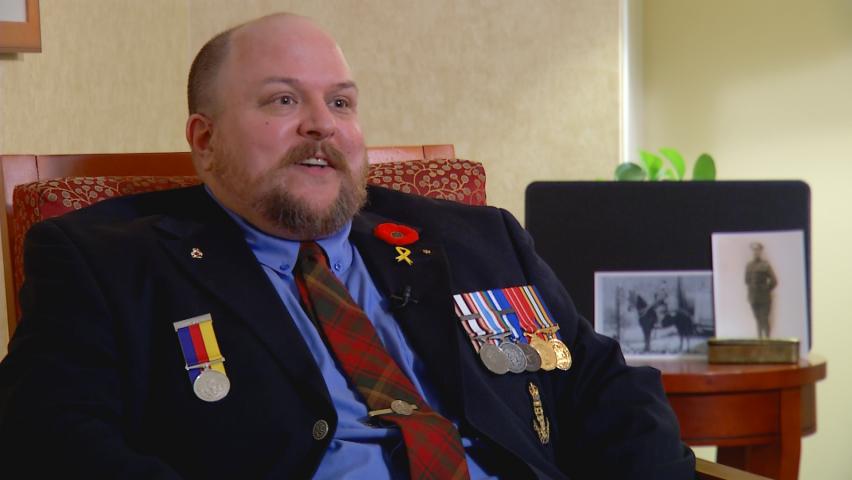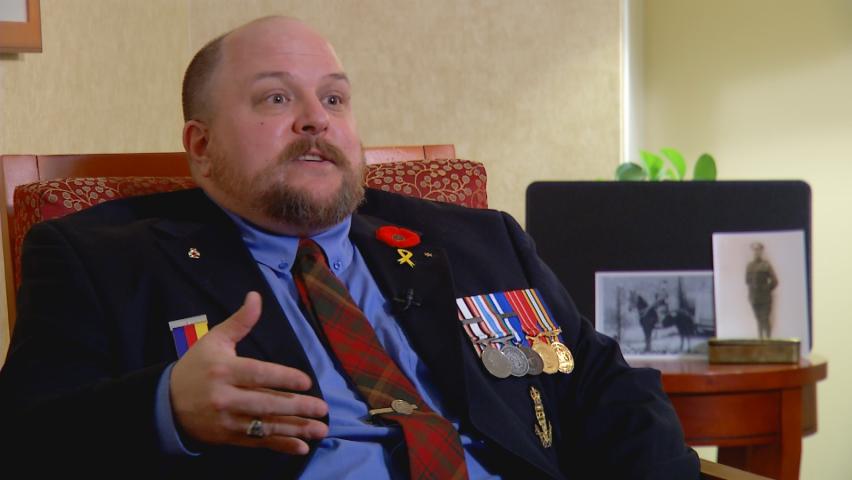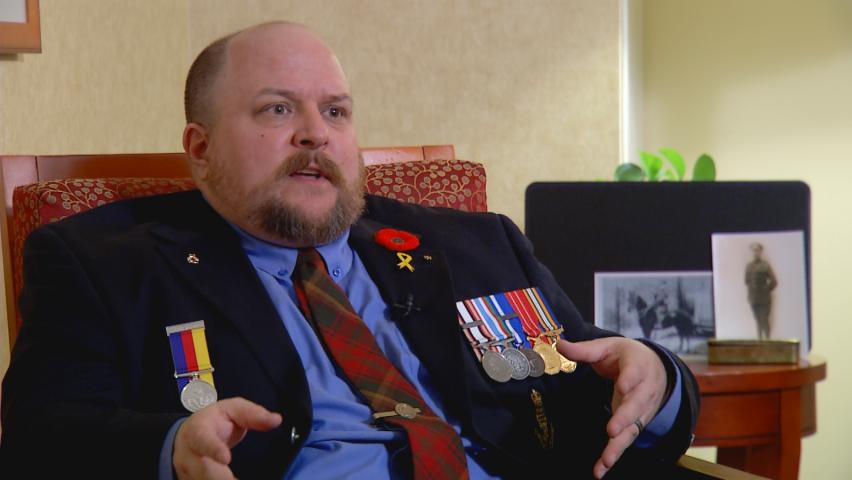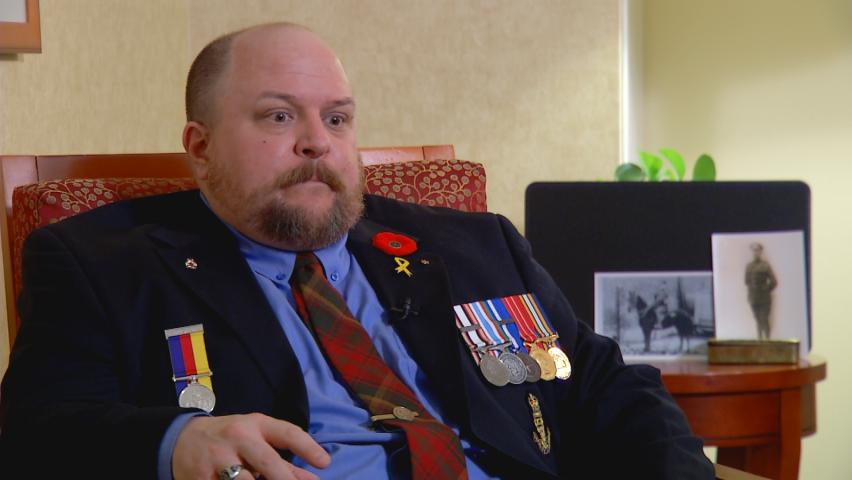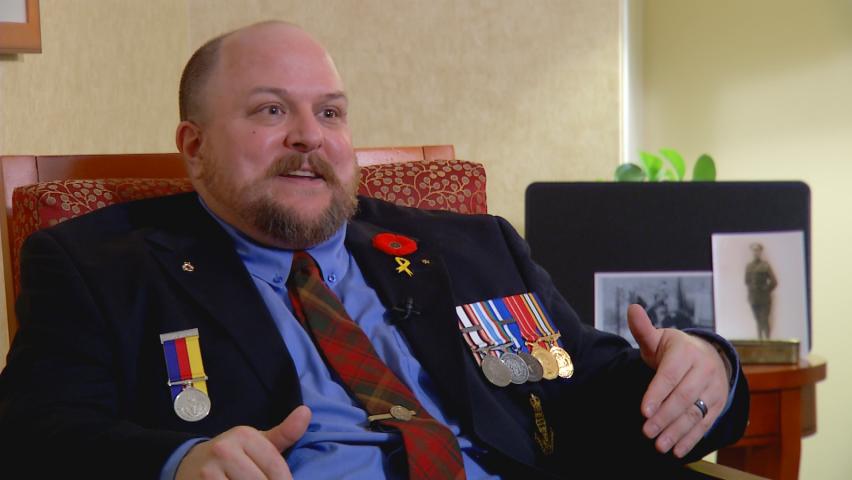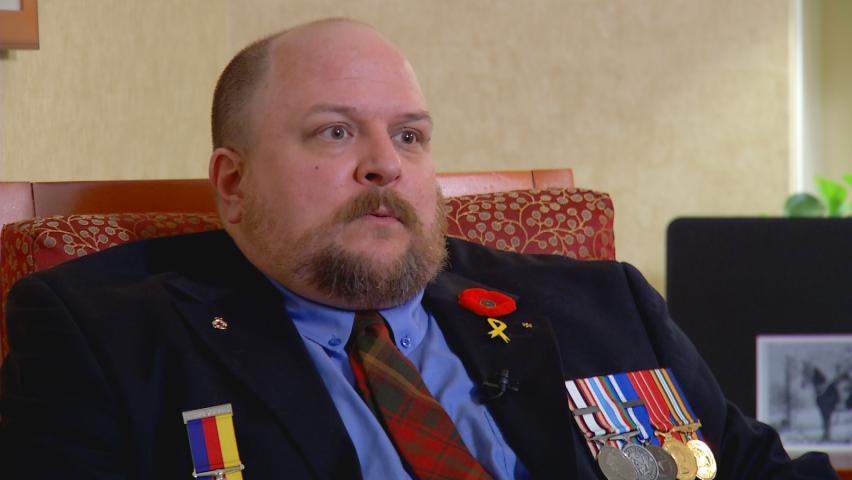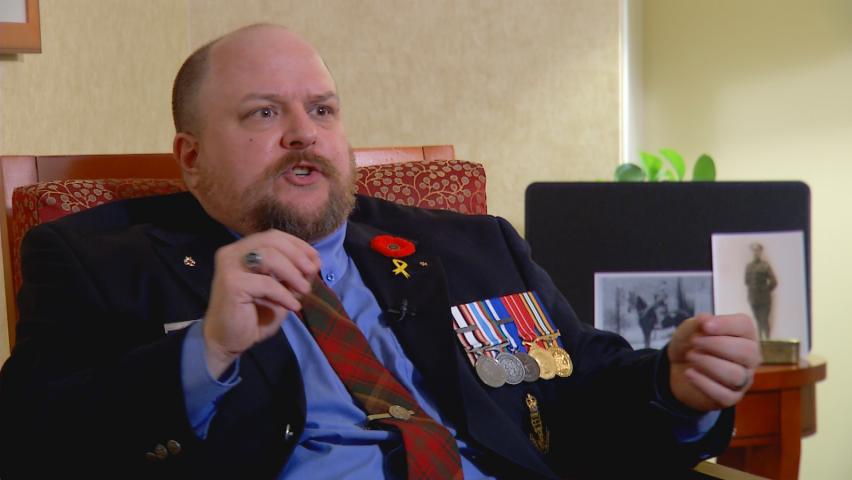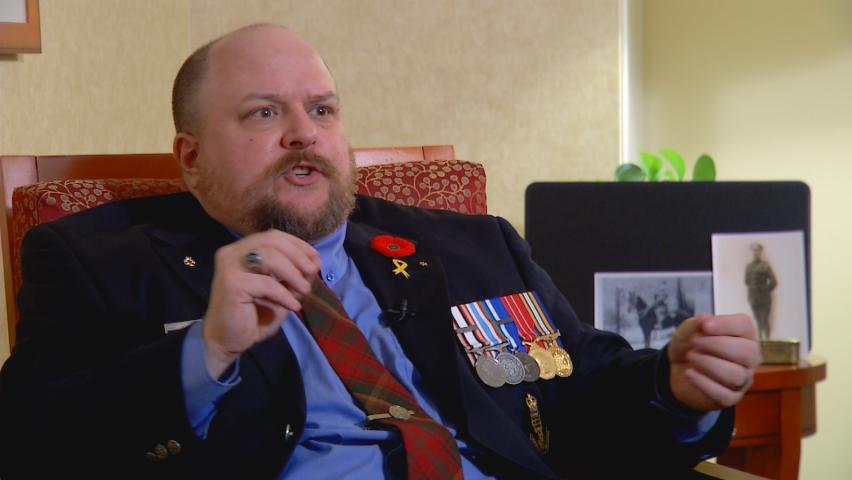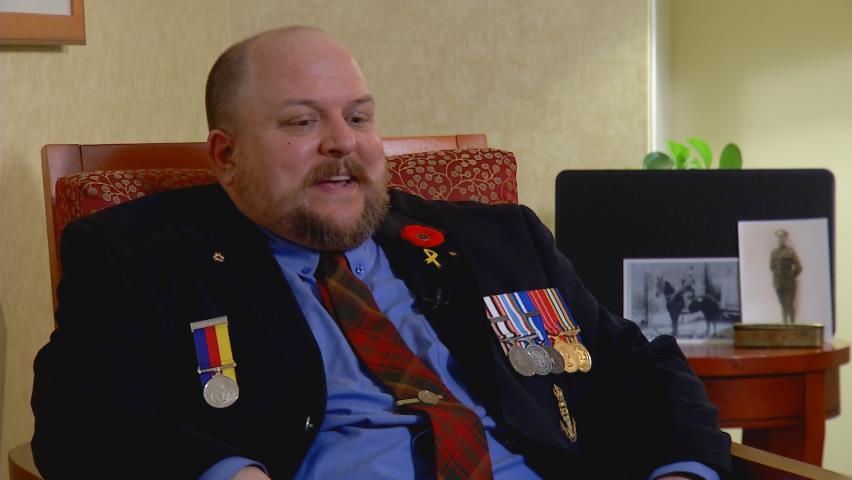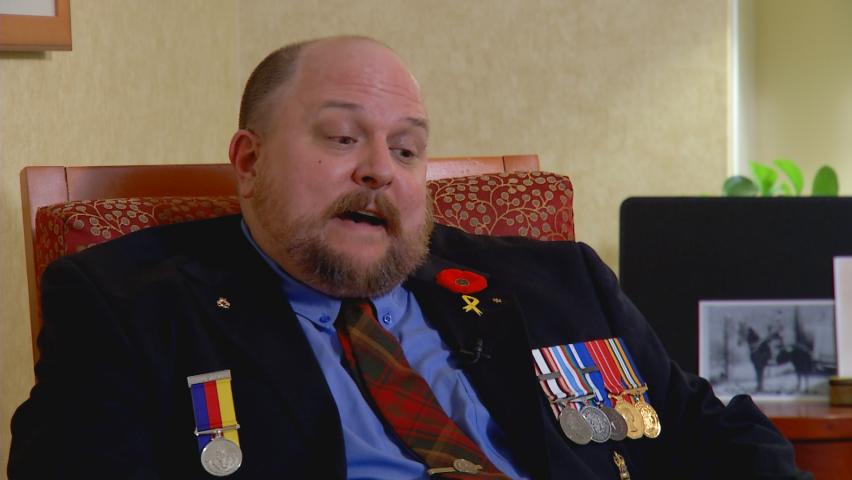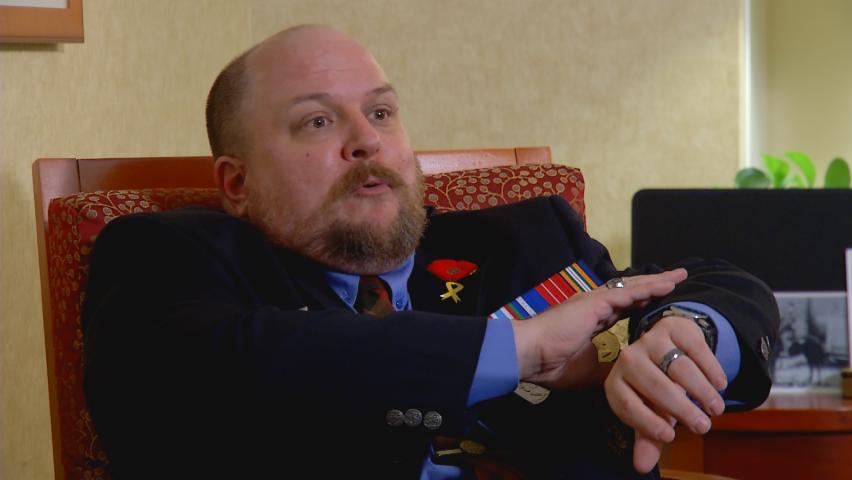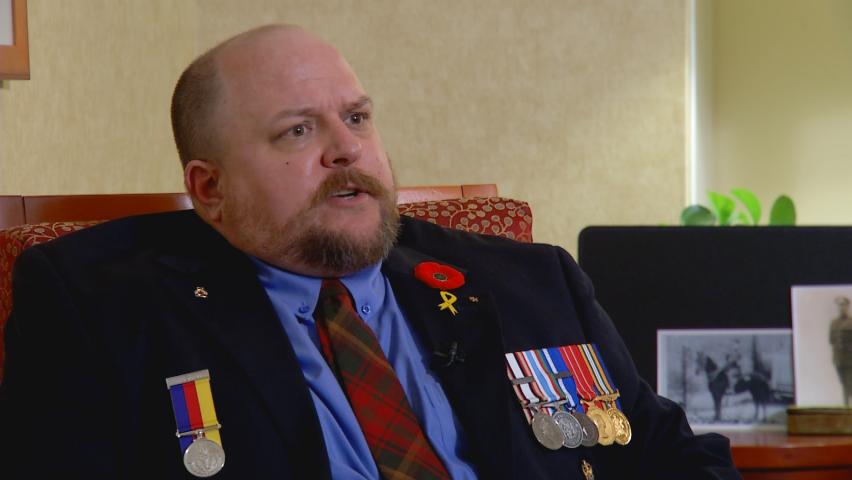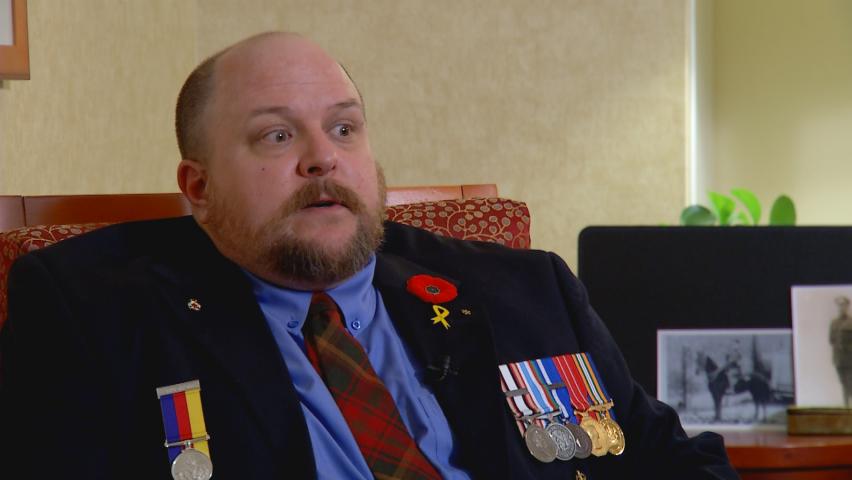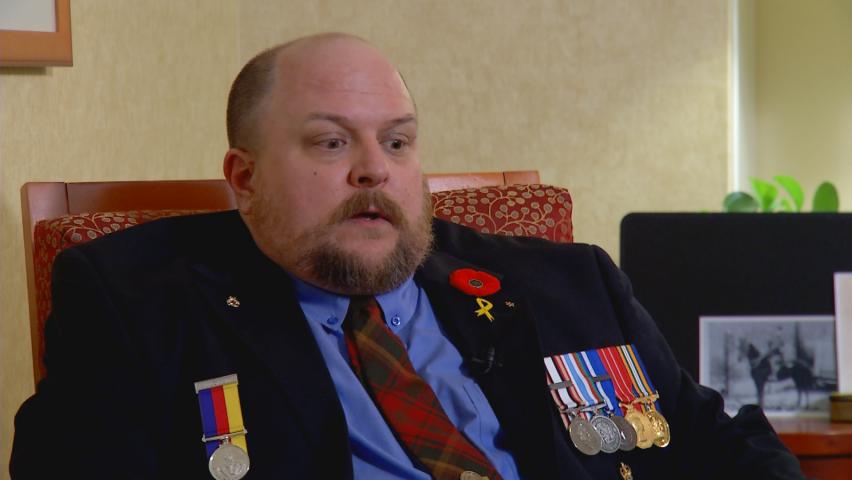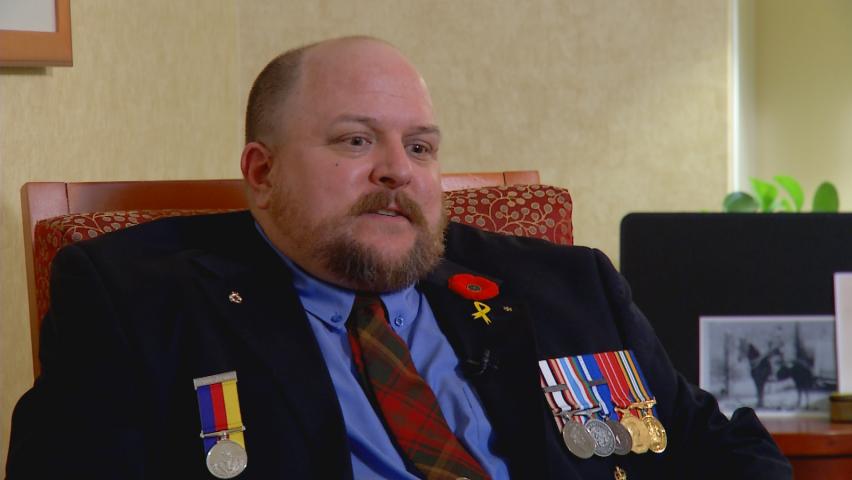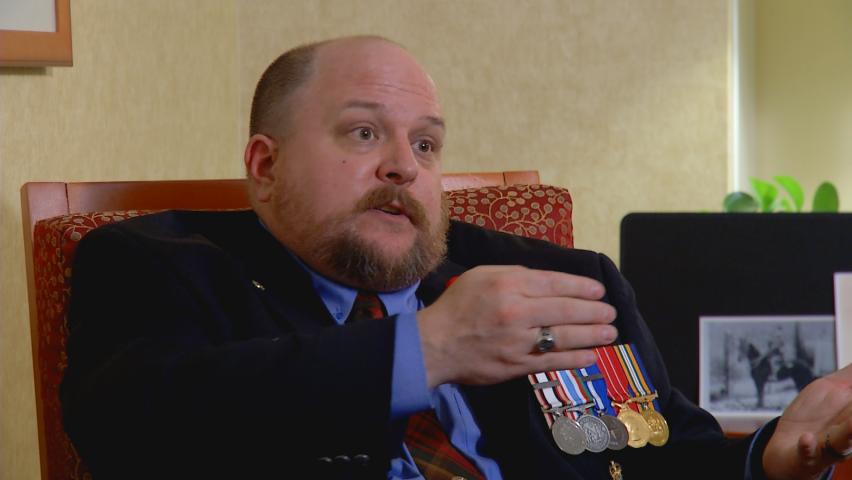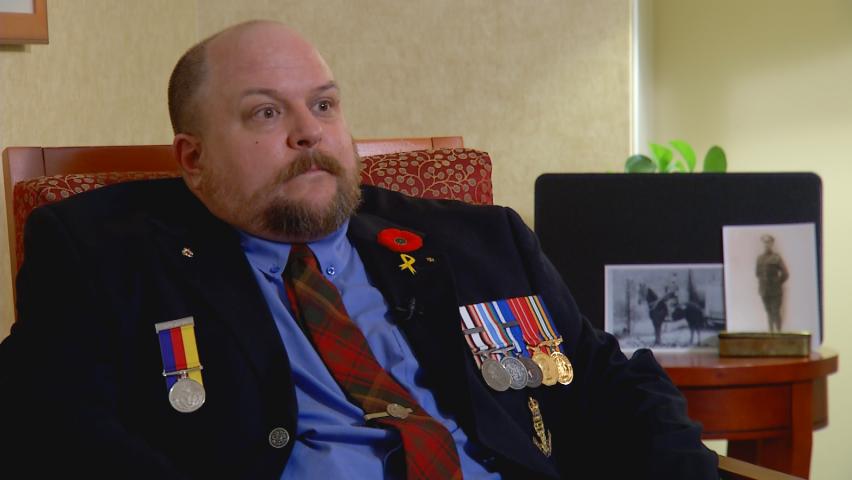Jason was not part of our original PSYOPS team.
It was us prairie boys from out west
that had gone on course in Montreal and
we were the westerners. We were the first
western crew to take PSYOPS.
PSYOPS was a new thing, trained in England
with English instructors trained
our guys that instructed us and
so we wanted to, you know,
our team was western. During the workup
training they realized that we needed
more support on the ground so they
provided us with an additional person.
That person came from
the Royal Highland Regiment,
the Black Watch of Canada and his name
was Jason Warren, he was a corporal
there and Jason came to join us at that time.
So we were well into our training and he
was sort of the outsider and he showed up in
Edmonton and, you know, we invited him to
our houses for Christmas.
We made sure he was there because
he was stuck in the barracks.
We invited him out to a lot of stuff with us
and we got to know Jason really well.
He had a super smile.
He’d love, when we were on patrol he’d
love to talk to the kids and he would
speak in, we were learning a bit of Pashtun
and he would speak to them in their own
language with our atrocious Canadian
accents of course and we would make the
locals laugh and that would open a lot of
doors for us as part of our PSYOPS gig.
We were to engage and talk to people
so Jason was a really good ice breaker.
He would roll up his sleeve and show his
tattoos and the kids would be all over
that to come and see this art because
it was something they had really not seen
too much of. As the mission progressed,
we were getting near the end of our time there.
It was July, we were doing inventory on all
of our PSYOPS equipment and propaganda
material because we had to make sure
we had sufficient stocks for operations
of paperwork and pamphlets and leaflets
and videos and the whole nine yards.
We did radio broadcasts with the
radio station right in Kandahar.
We broadcast messages to the locals on
the local radio nets and through the
BBC and different things like that and
so we were always making this stuff.
And Jason was really good with
the PSYOPS stuff. He had been doing
a lot of extra work with the PSYOPS
units so he was often our go between,
between the command element and
the battle group, reference PSYOPS
products and testing those things in
the local market and making sure they
were effective. So the battle group
command operations centre, they say
hey are you able to go and assist and so
I volunteered our team because we
were doing inventory but it was not
critical mission stuff.
Getting supplies to our guys out in
Helmand was mission essential.
So I said okay let’s do this convoy and
unfortunately that was the 22nd of July
on the way back from Helmand a suicide
bomber in a van detonated his van and
the guys afterwards, the explosive guys
thought he had used about 7 to 10,
122 mm rockets so giant rockets.
It was enough to knock the LAV upside
down in the ditch and killed the driver,
Corporal Frank Gomez from the Strathcona’s.
It injured Captain Ross, Tony Ross who
was commanding the vehicle at the
time and everybody in the back
of the vehicle was injured.
Unfortunately Jason was also killed.
He was standing up in the family hatch, the big
open hatch in the back at the time as he
was acting as a sentry to keep vehicles
from getting too close. A chopper came and
got the casualties out and treated and
unfortunately Jason didn’t make it home.
What makes the story really hit home for me is
the night before we went on that convoy Jason
knocked on the door of my room in Kandahar
airfield and asked if he could talk to me.
And I asked, “What’s up J?”
He said, “Serg, I got a really bad feeling
about tomorrow, I don’t want to go!”
And I said, “Come one, we’ve been through
this ambush, we’ve been through that ambush,
we were through this IED,
we were through this contact, you know,
you and I have been through so much,
what’s one more mission,
you’re going to be fine!” And he laughed and
he said, “Guess I’ll have to use my
soldier skills to get me through!”
And we both had a chuckle and, you know,
looking back on it, did he know? Maybe he did.
There was nine days left in theatre before
Jason was to rotate home when this thing
happened. I wanted to go with Jason home but
they said you need to be here for your team
so I stayed behind and understandably they
delegated another sergeant to go with him
home and I just felt like that should have been
my priority but I was to look after the guys we
had left and as a sergeant you look after your
troops, you try to get them home and, you know,
that’s one of my biggest feelings of guilt that
I have and it’s survivor’s guilt and it happens
to a lot of Veterans and a lot of people in this
situation and I understand the process of it but
I tell you it’s heavy.
It’s a weight that you feel responsible for.
This is my first time back in ten years,
today and that hasn’t changed.
It’s still very emotional and it’s very heavy.
But there’s a lot more stones in front of Jason’s
now then there were back in ’06. War changes,
the technology of war changes but the way it
affects humans hasn’t changed since the first war.
Hopefully we will stop having it soon.



